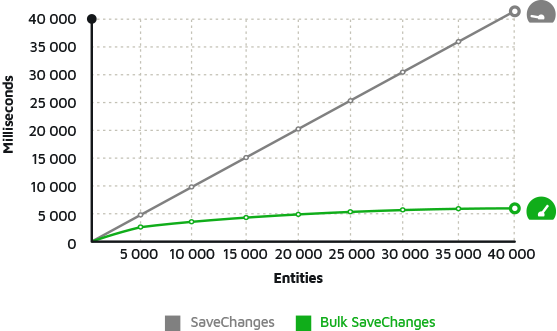Entity Framework Audit.NET Discover How to Perform Auditing
Definition
Audit.NET is an extensible framework to audit executing operations in .NET applications.
It generates an audit log with evidence for reconstruction and examination of activities that have affected specific operations or procedures.
AuditScope
The AuditScope is the central object of this framework. It encapsulates an audit event, controlling its lifecycle. The Audit Event is an extensible information container of an audited operation.
Create an Audit Scope by calling the static AuditScope.Create method.
Order order = Db.GetOrder(orderId); using (AuditScope.Create("Order:Update", () => order)) { order.Status = -1; order.OrderItems = null; order = Db.OrderUpdate(order); }
- The first parameter of the Create method is an event type name intended to identify and group the events.
- The second is the delegate to obtain the object to track (target object), and this object is passed as a
Func<object>to allow the library inspect the value at the beginning and at the disposal of the scope. - It is not mandatory to supply a target object, pass
nullwhen you don't want to track a specific object.
Discard Option
The AuditScope object has a Discard() method to allow the user to discard an event under a specific condition.
For example, if you want to avoid saving the audit event when an exception is thrown:
using (var scope = AuditScope.Create("SomeEvent", () => someTarget)) { try { //some operation Critical.Operation(); } catch (Exception ex) { //If an exception is thrown, discard the audit event scope.Discard(); } }
Requirements
Entity Framework Version
- Entity Framework Core
- Entity Framework 6
ZZZ Projects
